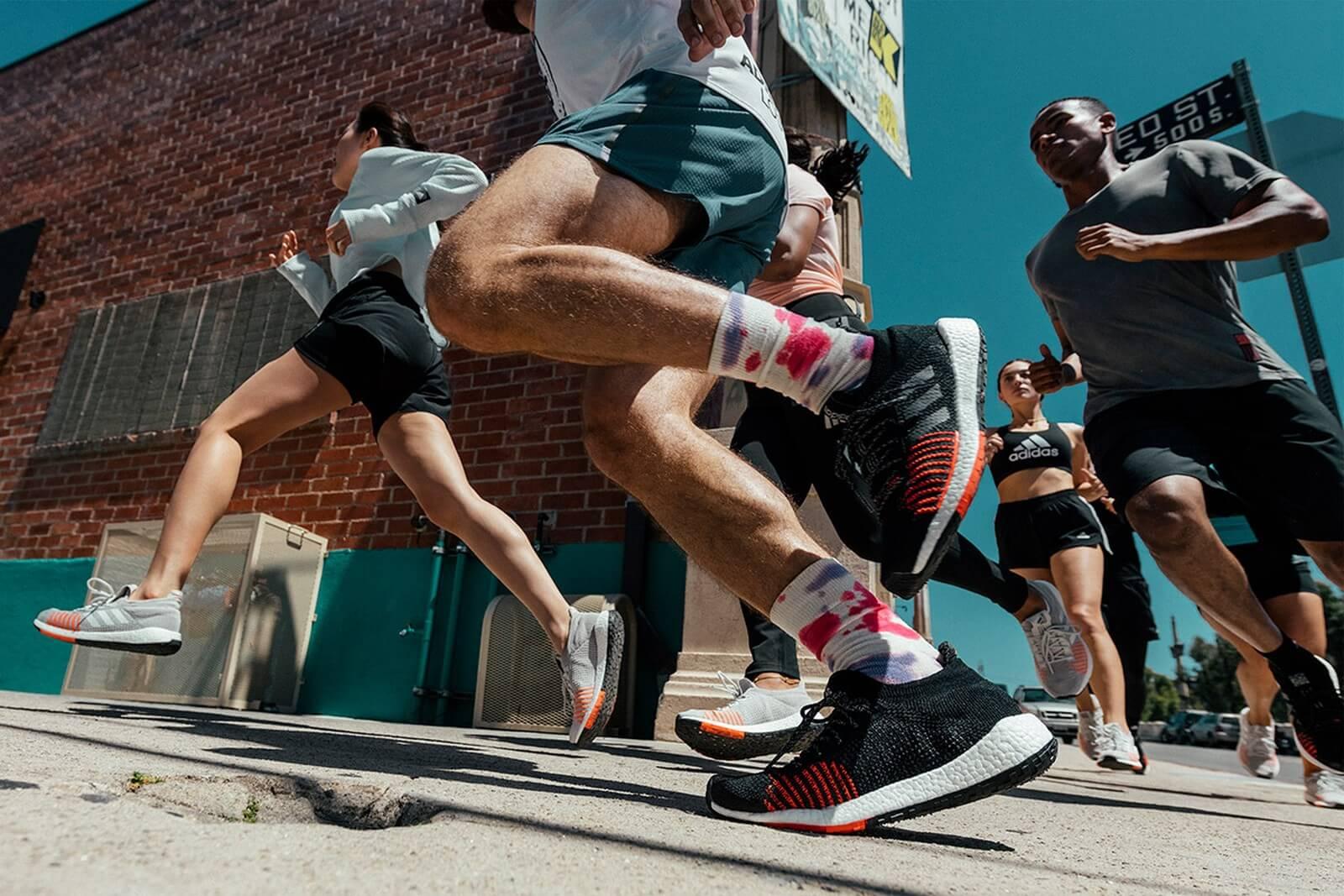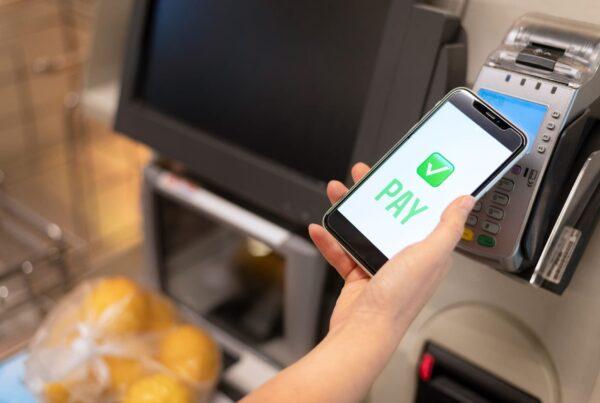With social distancing, sport is still a hot topic. People take online yoga classes, exercise, and run at home to relieve stress and continue to take care of their physical health. When customers keep good sports habits, the volume of sports products continues to grow. As a result, the athletics market has been crowned one of the winners of the pandemic. But the picture is more complicated than that. Along with higher online sales in 2021 comes the expectation for more digital marketing efforts as well.
Keep reading on to learn 6 best practices for sports marketing in the 2022 sales season so you can implement them to stand out and break through.
Sporting goods trends

The demand for sportswear is changing rapidly. In addition, customers are increasingly concerned about the environment. Therefore, sports products serve the customers’ training demand, need to express personality, and aim for sustainability.
To get the best eCommerce results, you should recognize and make the right changes in sports marketing in response to the 9 latest rising sporting goods industry trends:
- Increase sales for in-home sports equipment and accessories
- Shift from brick-and-mortar to omnichannel shopping
- Focus on customer’s entertainment and experiences more than sales
- Apply modern technology
- Leverage big data to understand customers
- Change faster to adapt to shorter product life cycles
- Focus on digital brand marketing
- Care for the environment (recycling and sustainability)
- Combine fashion with everyday wear (athleisure)
- Compete with manufacturers and increase the relationship with suppliers
If your retail brand’s sports marketing strategies prove ineffective, now is the time to push it and stay on top of industry trends.
Any marketer thinking of using sports marketing to drive brand value is on the right track.
It’s beneficial to motivate customers to participate in different types of sports, thereby bringing your product and brand closer to the customers.
Sporting goods sales seasons

Marketing and sales campaigns are only successful if you launch them at the right time. So, in addition to branded sales, here are the holidays that retailers can’t miss to boost sales.
1. Summer
Hot weather increases the demand for summer sports like swimming, cycling, running, trekking, roller skating. Therefore, summer is a good time for sportswear retail to:
- Increase sales of swimwear, water accessories, bicycles, and outdoor gears
- Discounts on previous collections
- Discard discontinued goods
2. Back to school
58% of online searches occur in September.
In the sports sector, back to school brings growth in sales due to:
- Children and youth buy sportswear to return to school for fitness classes and after-school activities.
- For adults, September is the time to return to gyms and sports centers.
So back to school is an attractive season to sell sports clothing and accessories for customers of all ages.
3. Winter and Christmas
56.2% of customers search online before purchasing Christmas.
Winter is associated with Christmas — the most remarkable sales season for manufacturers and retailers. Sports products are an increasingly popular Christmas gift.
In addition, more and more people continue to practice outdoor sports during winter. Therefore, the demand for cold-resistant clothing increases during these months.
4. Other noteworthy events for the sports sector

Throughout the year, there are other exciting events from a merchandising standpoint that increase sporting goods purchases:
- Father’s Day: From February to March, it’s an excellent time to promote product lines or gift packages for Father’s Day gifts. Customers buy sports clothes and accessories as gifts for men.
- Black Friday: Online searches usually start to increase in the first week of November. More interestingly, sports goods sales soar to 1,385% during Black Friday.
- Singles Day (November 11): It originated in China and is gaining popularity worldwide, bringing in thousands of millions of dollars in sales in just one day. The core of this holiday is self-care, so this is an excellent time to order more quality sports products or relaxation sports like yoga.
Sports marketing best practices
Sports marketing is a marketing strategy that uses sports-related content for advertising your products by:
- Building brands around a healthy or aspirational sports lifestyle
- Leveraging the incredible power of sport to drive sales like athlete endorsement and Super Bowl advertising
If you don’t know where to start, below are 6 essential strategies to boost your sports marketing.
1. Target a specific audience

According to the tenets of sports marketing, the first thing to define is your target audience.
- By understanding your target customers, you’ll have a clue on how to reach them.
- Each product serves a unique audience that will help you impact ROI in the long run.
Thus, start reviewing to understand the characteristics of your niche, including:
- Scope: Are you targeting a local or international audience? From there, you can choose your client’s favorite sports team or segment customers on email segments and reach out to them directly.
- Hobbies: Does your target customer enjoy hiking, golf, boating, or basketball? After concretizing your marketing strategy, you can build a deeper bond with your customers.
- Lifestyle: What are your client’s lifestyle and goals? Is your target customer enjoying sports as a spectator, becoming a professional athlete, or trying to get in shape?
- Athletic qualifications: Marathon runners may not be interested in the same services or products as a typical runner.
- Income: How do your target customers spend their money and time? It represents their income and willingness to pay.
- Age: Tailor your marketing tactics to the age of your target audience.
The 5 elements above provide the information you need to create your respective marketing campaigns and clearly describe:
- What products and services do customers want to buy?
- How should you approach customers?
Then, think about ways you can engage them in unique ways. For examples:
- A sports marketing campaign for young people on the U.S. West Coast should focus on an outdoor sports lifestyle.
- A sports marketing campaign for older adults can refer to basic healthy lifestyle choices and nostalgic sports.
2. Create engaging sports content

Your products and services will never be the first on the market. Therefore, a great idea to position your brand is to look at it from a unique or unusual angle. What keeps sports fans constantly interested is engaging content featuring their favorite sports characters.
Thus, you can unlock a wealth of new potential customers by tapping into your pre-existing network of passionate sports fans:
- Create engaging content together with celebrities and new athletes: Nike has crafted iconic sports marketing strategies.
- Provide potential customers with compelling text, photo, and video content on multiple platforms: You can start with a sports video, blog, press release, or Twitter that describes or interacts with their favorite sports celebrities. It sparks a passion for sports and excitement for sharing moments with celebrities.
3. Choose perfect timing for your content

Sports marketing is closely tied to:
- Seasonal sports
- Live events
Therefore, it’s essential to choose the most effective times to post your marketing content.
- Tailor your message to suit your target audience. Matching the right message to the right audience will lead you to the results you want.
- Identify the best channel to reach your target customers.
Here are some inspiring ideas:
- Hold a sport event marketing: Ride the pre-match buzz
- Take a chance: Congratulate the winning teams while everyone is watching
- Keep a close eye on famous athletes: Choose when they appear most during the season or off-season times that fans may miss
Ideally, you can schedule content across all platforms to deliver consistent content to your existing and potential customers:
- Set the perfect rhythm for content posting
- Develop an effective email campaign and apply automation
- Consider when social media will be more effective than email
4. Build sports brand partnerships and sponsorship

The most exciting element of sports marketing is the relationship between athletes and popular sports. Partnerships and sponsorships can help to:
- Expand the scale of promotions
- Create quality brand awareness
Consider the following when developing your sports marketing strategy:
- Hold promotional contests: Generate buzz and interest from your new followers who engage on your social media platforms. It can improve the ability to reach and interact with your customers and brand awareness.
- Build brand partnerships: Forge a strong partnership with sports teams and brands to attract more potential customers.
- Become a sponsor of a local team or sporting event: Increase brand visibility. For example, brand logos in stadiums, helmets, and jerseys are great ways to achieve massive advertising.
5. Leverage social media for sports marketing

Sports marketing relies heavily on contact with sports fans and their favorites before, during, and after the big game.
52% of sports fans use their mobile device while watching a sporting event.
Therefore, social media is a suitable channel to increase brand awareness. Most of your potential customers are on some social network, and it’s a powerful tool for the modern platform of sports marketing to:
- Deepen the connection with many existing fans
- Enhance their match watching experience
You can increase your brand presence by tapping into this resource:
- Facebook: Engage with customers, increase brand awareness, and call to action
- Instagram: Focus on event-related posts to create awareness and increase engagement because this social network is visually oriented
- Twitter: Drive conversation, so the strategy is to update the thoughts and lives of athletes, thereby connecting with potential customers.
6. Provide a seamless sports shopping experience

To maximize your potential, you might consider retargeting and attracting returning customers by:
- Advertising sports products on mobile devices
- Optimize sports marketing efforts for each context and purchase intent in real-time
However, all marketing efforts are ultimately about closing sales. A seamless sports shopping experience involves using digital data to personalize your experience and promotions from your brick-and-mortar store to your online website and apps. With sports and outdoor POS systems, you can concentrate your efforts on promotion and marketing, and retailers gain valuable information for a variety of purposes:
- Synchronization between online and offline promotion
- Personalized health tips and sports goods recommendation by POS data
- Seamless integration with Magento eCommerce app
- Localized inventory management to never miss a sales
Conclusion
While selling online becomes more important to gain a place in sports retail during COVID-19, the thriving sportswear industry after the pandemic will be the ones who take intelligent steps to capitalize on opportunities and recognize new demand trends. Therefore, building a digital marketing plan associated with a more transparent and more personal experience is essential.
To choose the right sports marketing strategy and execution for your business, you need to stay informed of emerging trends in the sports industry. Then, use the right marketing tools to increase potential customers.
Last but not least, make sure that your POS software is up-to-date so you can leverage the customers data to meet the changing demands and synchronize your promotional programs between online and offline channels.














